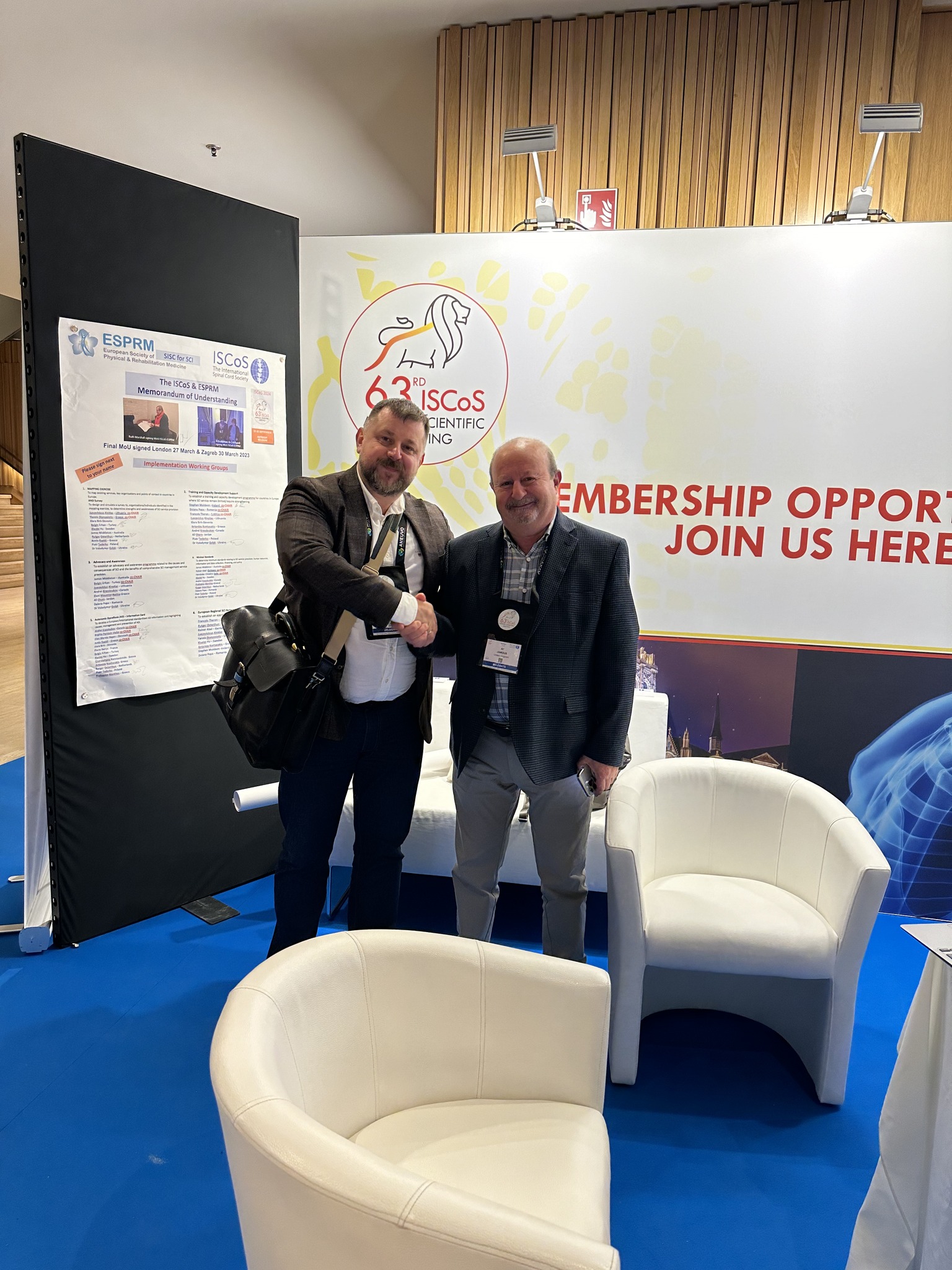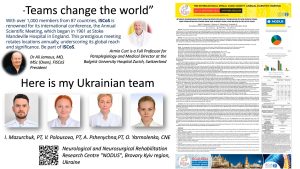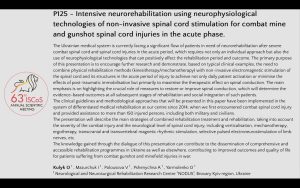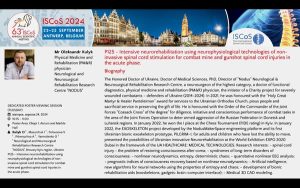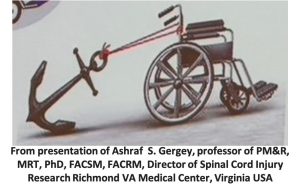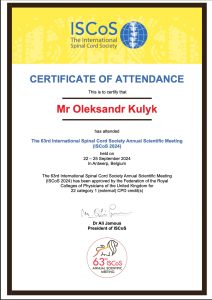These words belong to Oleksandr Kulyk, Honoured Doctor of Ukraine, MD, neurosurgeon, director of the NODUS
The results of 10 years of work of the NODUS team on neurorehabilitation of severely wounded Ukrainian defenders with spinal cord injuries were presented at the international conference ‘The INTERNATIONAL SPINAL CORD SOCIETY ANNUAL SCIENTIFIC MEETING 63-ISCoS Antwerpen, Belgium 22-25 September 2024’, which was accredited by the European Accreditation Council for Continuing Medical Education (EACCME®) and the Federation of the Royal Colleges of Physicians of the United Kingdom.
The 154 clinical cases of NODUS clearly demonstrate how it is possible to restore function and functioning in seemingly hopeless cases. This experience, gained by the centre’s team over ten years in the war, arouses keen interest and admiration among international experts and has strong support and interest in disseminating the results. At the conference, it became clear that in the diverse competencies of neurorehabilitation for severe spinal cord injuries, the experience, approaches and results of Ukrainian neurorehabilitation specialists have become more innovative than in most European countries and in general countries that are leading in issues and scientific discoveries in the field of neurorehabilitation. This was confirmed by the conference participants.
Today in Ukraine, it is imperative to understand that neurorehabilitation is not a field for amateurs and populists. This is not a topic that is being hype today, because it is about the real capabilities of medicine to put seriously injured people back on their feet. It is important not to confuse the three concepts: Neurorehabilitation, rehabilitation and habilitation. In a narrow sense, these are completely different processes, which are nowadays simplified and called ‘rehabilitation’ in one word. However, when it comes to neurorehabilitation, the treatment process requires separate, narrow competencies, experience in neurosurgery and professionalism in all these areas. This is important for the full recovery of spinal patients. Oleksandr Kulyk’s 24 years of experience and practice show that there has never been a single case where a patient with a severe spinal cord injury recovered without undergoing neurorehabilitation. All those who, for various reasons, left the neurorehabilitation route three or even one step away from the goal, remain with what they have achieved (at best). At worst, such patients regress almost to their original post-traumatic state. No amount of daily and hourly physical exercises will ever solve the problems that neurorehabilitation can.
Support now - anyone can help
Quick Donate with Portmone



